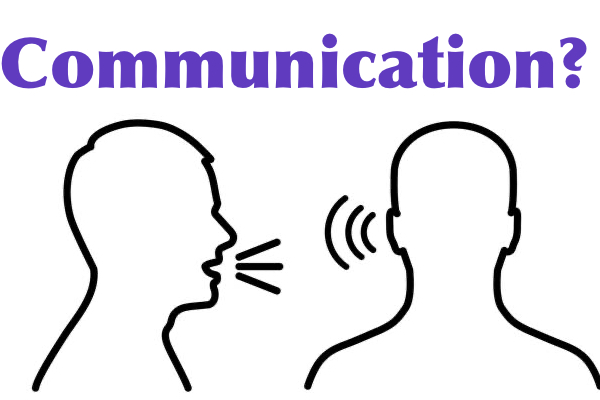You are a professional communicator. You preach and you teach. You lead worship. You lead devotions. You spend a lot of time on the phone: calling, texting, emailing. You make visits. You sit on boards and committees. You are busy with people. Of course you communicate.

So how can people say they are in the dark? How can people say they don’t “get it”? Maybe they are not paying attention. Maybe they need to actually read the bulletin and newsletter and emails. Maybe they… Wait. Stop right there. If they don’t get it. They don’t get it. The only thing you can control is you. So what are you doing or not doing that can be improved?
We make a lot of assumptions. Just because it is clear to you does not mean that it will be clear to others. The reality for much of our communication as leaders in the church is that we talk to a lot of people throughout the week and repeat ourselves a lot. We say a lot about specifics or details but we rarely give people the big picture.
Imagine you are going on a trip. You talk to your kids about what you will do at the vacation spot. You talk to your spouse about the sleep accommodations. You talk to your mechanic about the roadworthiness of your car. You talk to yourself about the budget and where you want to eat. But unless you stop and speak clearly with your family about when and where and how and why they will likely feel a bit confused. Sure they trust you but there’s a lot of assumptions going on. Instead, wouldn’t it be better if you engaged them from the beginning? Where together you would all decide where you were going and what you were doing? More work? Perhaps, but no one could say they didn’t know of were left out.
In the same way a ministry leader needs to give the big picture or framework upon which the various ministries and programs are placed. We need to fill in the blanks or connect the dots for people including where they fit with what is happening. “Since we’re going here (the preferred future) - our first step is this (current program or ministry). So since we know your gifts are (blank) then we see you doing (blank- within that program). That is going to make a big difference in how we get there (the preferred future).”
Even better, we need to involve and include them earlier in the conversation to even determine the preferred future and what steps or programs or ministries are necessary to get there! We leave a lot of great ideas and enthusiasm “on the table” because we overlook people and what they can contribute.
“Oh but that would take a lot of time.” Yes it will. But it will save you a massive amount of time and energy over the long run. If they help in the beginning they will be part of making it happen since they are already invested. There is far less chance to course correct or address people issues that become “speed bumps” down the road. That means less time with recruiting, onboarding, trying to get momentum going. Earlier engagement overcomes much of this. Not only that but it is a great way to develop leaders. By engaging people earlier you are investing in a kind of apprentice system.
But that means you will invest in the hard work of talking, planning, thinking with others and also communicating with God in prayer, both individually and collectively.
But that’s hard. Instead we often kind of go on instinct or reaction or just where it feels right. It’s faster and we think it's “good enough.” So we end up kind of, making it up as we go. Not very good.
Far better to pause. Get clear. Involve others. Together define: “This is where we are going. This is what we need to do to get there. This is what we have to accomplish right now (the wins) to stay on track. We need you to be a part of this.” Without that kind of big picture communication, people will opt out, drop out, not feel valued or wanting to be involved in something bigger than themselves.
So which way is your default mode?
What will you do differently?
Rev. Scott Gress is believes in Growing People for Ministry by focussing on leadership, discipleship and teamwork. Contact Scott if you are interested in him working with you or your church. A free 30 minutes sample session is available to explore how you might work best together. The Coaching Leader Podcast is also available on iTunes and his YouTube page. You can contact Scott through email scottgress@me.com or his blog page scottgress.com or at 561-542-4472
"Growing People for Ministry" Leadership + Discipleship + Teamwork
Check out the: Coaching Leader Podcast!

